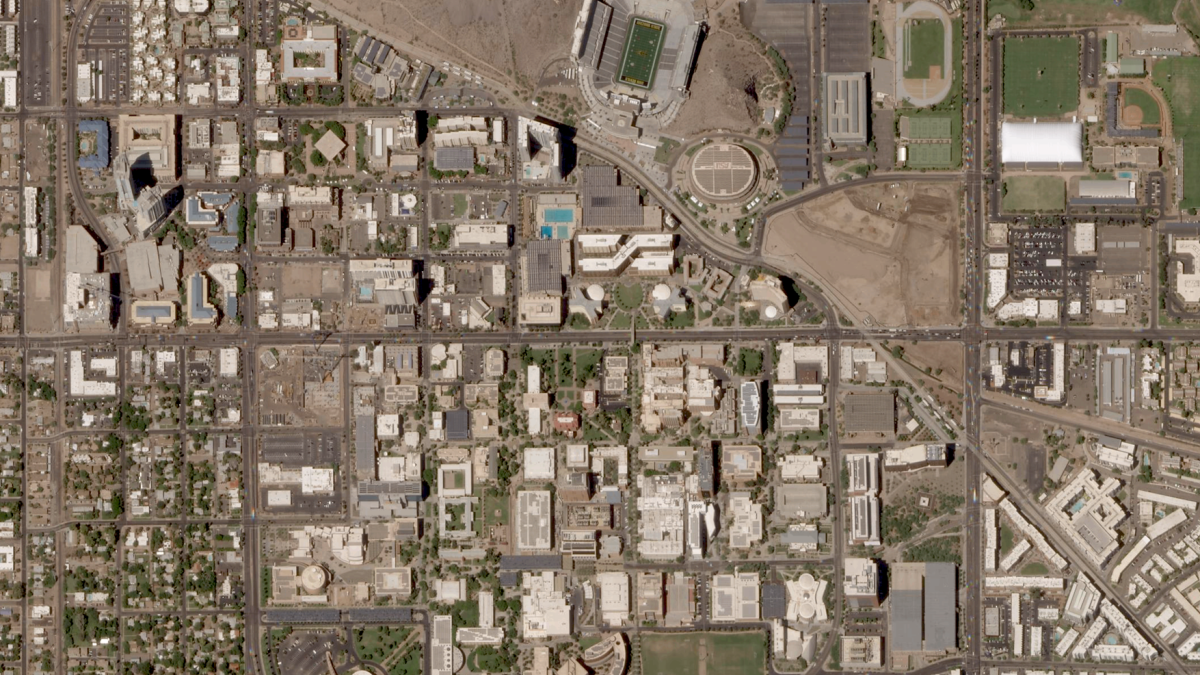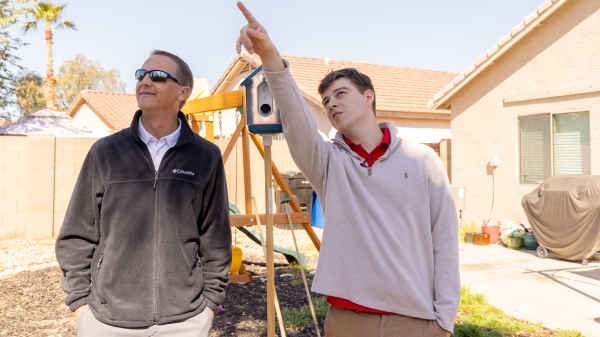Planet picks ASU as its first higher education partner
Students and researchers will have access to catalog of imagery from company’s satellites

Arizona State University today announced that it has joined forces with Planet, a San Francisco-based Earth-imaging company, as its first institutional data partner for higher education. Operating the largest constellation of satellites currently in orbit, Planet acquires high-resolution imagery covering the entire landmass and coral reefs of the Earth on a daily basis.
In an effort to expand the research use of this unprecedented stream of satellite imagery, ASU students and researchers will have access to the growing catalog of imagery from the company’s Dove and RapidEye 3-5m satellites.
“Combining ASU’s leadership in innovation with the unprecedented temporal resolution of Planet data provides the opportunity to unlock massive research potential,” said Tanya Harrison, director of research for ASU NewSpace. ASU NewSpace is a leader in the integration of higher education research and technology development with entrepreneurial and commercial space enterprises.
Greg Asner, director of ASU’s Center for Global Discovery and Conservation Science, and his team have pioneered numerous uses of Planet’s satellite data streams, with applications ranging from the world’s tropical forests to its coral reefs.
“This new data partnership between ASU and Planet will open the floodgates for literally everyday use of satellite imaging technology to address many of the most pressing issues on Earth including biodiversity loss and climate change,” said Asner. “Our center is pleased to serve as an ASU technical hub for research, applications and teaching with the world’s most powerful satellite constellation.”
Planet was started by former NASA employees who began building satellites in their garage. Today, Planet operates more than 140 satellites in Earth orbit that constantly snap images of our planet that are used by decision makers in business, government and nongovernmental organizations.
“With NewSpace and the Center for Global Discovery and Conservation Science, ASU has become one of the premier institutions in the world for Earth systems and space science, and hosts an incredibly talented and diverse student body. We couldn’t be more excited to get Planet data into the hands of these aspiring scientists and practitioners and see what they come up with,” said Joe Mascaro, director of academic programs at Planet.
Robbie Schingler, Planet’s co-founder and chief strategy officer, noted the industry connections fostered by ASU NewSpace: “This is a center with deep connections across the aerospace community, whose students are genuinely powering a space renaissance. We look forward to their insights.”
ASU’s School of Earth and Space Exploration along with ASU Library and the School for Geographical Studies and Urban Planning are among the many units on campus that will benefit from this collaboration.
Top photo: Satellite image of ASU's Tempe campus, taken Sept 8, 2018. Photo by Planet Labs Inc.
More Science and technology

Making magic happen: Engineering and designing theme parks
The themed entertainment industry is widespread and diverse, encompassing everything from theme parks to aquariums, zoos, water parks, museums and more. The Theme Park Engineering and Design…

AI-equipped feeders allow ASU Online students to study bird behavior remotely
ASU Online students are participating in a research opportunity that's for the birds — literally. Online Bird Buddies is a project that allows students to observe birds remotely, using bird feeders…

National Humanities Center renews partnership with Lincoln Center for responsible AI research
The National Humanities Center has announced that Arizona State University's Lincoln Center for Applied Ethics is one of four organizations to receive funding for the second phase of their…